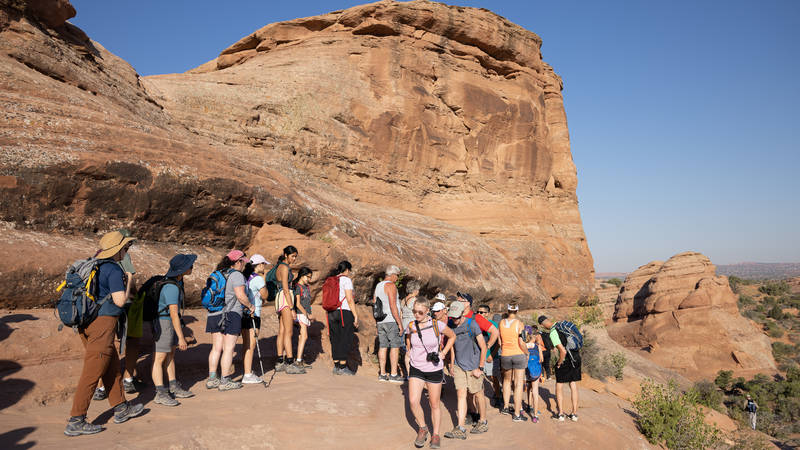Meeting with your elected official can be a positive experience. You hold a great deal of influence as a registered voter. Elected officials are eager to meet with their constituents and will almost always remain courteous, attentive, and responsive during constituent visits. These tips can help make your visit a success.
Keep in mind that you do not need to travel to Washington, D.C., to meet with your representatives. Members of Congress regularly return to their in-district offices, and meeting on your “home turf” emphasizes your role as a constituent.
- Introduce yourself. Let them know you are an NPCA member who cares about national park issues. Most offices know NPCA, but if the legislator is new to Congress and unfamiliar with NPCA, explain that we are an advocacy organization formed in 1919 that is dedicated to the preservation of the national park system for present and future generations and that we have more than a million members and supporters nationwide.
- Find out how much time you will have. Confirm how much time you have to make sure you can get to your chief “asks.”
- Open with a “thank you.” If possible, try to start the meeting by thanking the legislator for something that they have done recently. Check their voting and awards record for a positive way to begin the meeting.
- Be direct. Be clear and concise regarding the issues you want to discuss, your point of view, and the actions you want the legislator to take. Bring stories about why national parks are important to you.
- Share supporting information. Present the legislator/staff person with relevant information and refer to it as you make your presentation.
- Bring it home. Show how the issue affects the member’s state or district. Share a relevant story to make the issue more personal.
- Give thanks. Always thank people for their time, whether meeting a legislator or a staff member. Even if they oppose your position, your visit will have a lasting impression and it’s important to remain professional.
- Write it down. You can take notes during your meeting to record all relevant information while it’s fresh in your mind.
- Follow up. Follow up your visit with a thank-you note. If legislator or staff member requested additional information, provide it to the office as quickly as possible.
Things to Remember
- Select a spokesperson. If you are meeting with a group of people, choose a spokesperson to take the lead during the visit to keep the meeting on track. Everyone attending the meeting will still have the opportunity to offer up information or share personal stories.
- Be prompt. It’s common for legislators to arrive late to meetings, but you should plan on arriving at least five minutes prior to the meeting’s start time. If you are delayed by another meeting, call ahead and let the office know you will be late.
- Be polite. Positive body language, good demeanor, and good rapport will help maintain open communication between you and your legislator. Nonverbal communication speaks loudly, so be mindful.
- Listen. Pay attention to what your legislator or staff person says, as they may have valid concerns that need to be addressed. If they know you aren’t paying attention, they will retain little of your information.
- Be honest. If you don’t know the answer to a question, don’t make it up. It’s perfectly acceptable to respond with “I’m not sure, but I can find out.” Make sure you follow up promptly with responses to any questions.
- Stay on message. This is very important. Often in an effort to skirt an issue, a legislator may change the subject or bring up irrelevant points. Politely bring them back to the conversation and remain in control. When/if your legislator brings up nonfactual information or points, take the opportunity to educate them and bring them back in focus.
- Be accommodating. If you are meeting with staff, be prepared to meet with them in the hallway or in the cafeteria. House offices especially are small and crowded.
- Allow time to enter buildings. Be aware that lines to get into the House and Senate office buildings can be long, so build in extra time to get through security.
About the author
-
 Christina Hazard Legislative Director, Government Affairs
Christina Hazard Legislative Director, Government AffairsChristina Hazard joined NPCA in 2006 and is the Legislative Director for the Government Affairs team.


